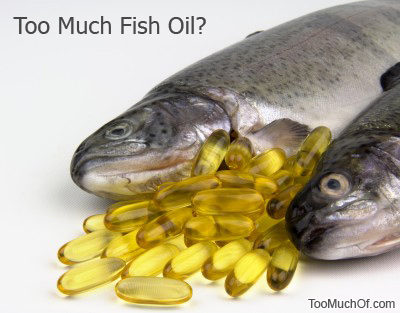 Fish Oil (an omega-3 oil) is an extract from the tissues of oily fish. Fish Oils composed of omega-3 fatty acids known as EPA (eicosapentaenoic acid) and DHA (docosahexaenoic acid). These compounds were found to reduce inflammation and provide other health benefits.
Fish Oil (an omega-3 oil) is an extract from the tissues of oily fish. Fish Oils composed of omega-3 fatty acids known as EPA (eicosapentaenoic acid) and DHA (docosahexaenoic acid). These compounds were found to reduce inflammation and provide other health benefits.
The accumulation of omega-3 fatty acids in the tissues of fish is attributed to consumption of either microalgae or prey fish by oily fish. The dietary source of fish oil is cold water oily fish, which includes sardines, mackerel, herring, salmon and anchovies. The highest concentration of omega-3 fatty acids is in sardines herring, salmon, Spanish, Atlantic and Pacific mackerel and swordfish.
Benefits of fish oil
A large number of studies on the benefits of fish oil have been taking since the attention emerged to different type of fats required for the human body to process. These omega-3 oriented studies have found connections of the following possible benefits from fish oil
- Prevention of breast, colon and prostate cancer
- Treatment of cardiovascular conditions, hypertension
- Reduction of depression and suicides
- Maintenance of cognitive functions in Alzheimer’s disease
- Neuroprotective qualities in Parkinson’s disease progression
- Improvement of skin conditions such as psoriases and seborrheic dermatitis
Before consumption of the supplements containing omega-3 fats, consult your doctor as it may negatively impact your health if you take any medications that thin your blood.
Fish oil toxicity dangers
A possible consideration against the fish oil consumption is the quality of the supplements. Many supplements derive from a fish that may potentially carry dangerous levels of toxins which are potentially hazardous, carcinogenic and even fatal even at low levels of exposure over time. These include but not limited to
- Dioxins – byproducts of industrial processes such as those used in manufacturing plants. Most are highly toxic compounds and are the major hazardous elements of the environmental pollution
- PCBs (Polychlorinated biphenyls) – used in electronic devices and coolant fluids in production of transformers and electric motors
- Mercury – a serving of fish may contain up to 1,000ppb of mercury, which is considered highly toxic if used in a daily diet
- Nutrient spoilage – peroxides are byproduct of fish oil production
- Raw fish oil production materials – these are other elements that are introduced into the fish oil contents during the production, that assist in processes of refining, concentration, extraction, storage and transportation
With daily consumption of the supplements, fish oil toxins may accumulate to dangerous levels and eventually cause an array of systemic illnesses that would be very difficult to diagnose and treat.
Another example of the real fish oil toxicity dangers was a lawsuit filed by the California environmental group in 2010 that presented an evidence of eight brands of the supplements that contained excessive levels of toxic substances in their omega-3 supplements. The vendors that were accused of poisoning their product consumers were Twinlab, CVS pharmacy, Nature Made, Rite Aid, GNC, Solgar, Now Health, and Omega Protein
Fish oil supplementation side effects and dangers associated with dietary fish oil supplements
Although omega-3 supplementation may seem like a logical choice for health benefits, too much of anything or even a modest consumption of fish oils may produce different effects on a human body. While the studies have connected the omega-3 fatty acids to improvement in certain conditions, most numbers represent a statistical calculation that does not always represent an accurate picture of the nutritional and physiological states of the studies’ participants.
Despite the numerous studies that have been praising the fish oil benefits, an extremely profitable 1.1 billion industry, the latest studies have been providing a different view on the omega-3 hype.
Some of the health risks associated even with the highest quality fish oil supplements are
- Prostate cancer – Fred Hutchinson Cancer Research Center in Seattle conducted a study that those who had the highest concentration of EPA, DHA and DPA were at highest risk of prostate cancer
- A review of 20 studies in the Journal of the American Medical Association found that consumption of fish oil supplements did not reduce the risk of heart attack or a stroke
- BMJ group examined 38 studies and found that statistically those who ate 2 to 4 servings of fish week had reduction of stroke risk by only 6%. However, the results of the randomized trial studies did not reveal an actual significant reduction of heart attacks or strokes
- A review of the long standing studies by Cochrane Collaboration resulted in conclusion that omega-3 pills have failed to prevent or improve cognitive decline conditions
The most common fish oil supplementation side effects are
- Increased risk of bleeding in liver disease
- Reduction of immune system function
- Reactivation of herpes family viruses, resulting in cold sores, genital herpes and shingles
- Gastrointestinal discomfort
- Bloating
- Itching
- Gallbladder attacks in those who are predisposed
- Nausea
- Diarrhea
- Skin rashes
- Nosebleeds
- Bipolar disorder symptoms aggravation
- Depression
- High or low blood pressure
- Heartburn and Acid Reflux
- Weight gain
- Increase in blood glucose levels
- Increase in cholesterol levels, specifically increase in harmful LDL cholesterol
- Seafood allergy
- Upper respiratory tract swelling
- Implications in HIV/AIDS conditions
- Increased risk of cancer in people with Familial adenomatous polyposis
- Implications in pregnancy and breastfeeding
It is strongly recommended that fish oil supplements are takes only on a short term basis and under supervision of a doctor. The best long term benefits of consuming Omega-3 fats can be obtain via consuming a wild caught fish such as cod, salmon, tilapia and mahi. The farm raised fish should be avoided as its mostly raised with soy and corn.
